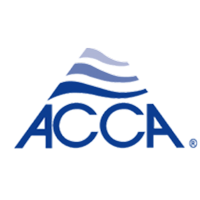
Buying your first home is thrilling. You’re likely trying to keep track of numerous details about making the right choice. We believe that understanding your future HVAC system is essential. The property’s HVAC system represents a substantial investment and potential source of long-term costs, illustrating why a detailed inspection should be a top priority for first-time homebuyers.
In the following guide, we’ll share seven tips for learning everything you can about a home’s heating and cooling setup. And if you want a deeper opinion from the experts, consider calling J & J Air Conditioning. Our seasoned technicians can weigh in on your options with industry insights that are second to none.
1. Which Kind of HVAC System Does the Home Use?
Start by clarifying what specific HVAC system the home includes. Furnaces generally last longer than air conditioners, and some of the latest types of HVAC products like heat pumps feature average life spans longer than ever. Getting the details on the make and specific model provides a clear idea of how much it might cost in upkeep over time.
2. What Is the Current System’s Age?
Another good idea is to find out how old the HVAC system is when you're considering a new home. On average, HVAC systems should survive for around 10-12 years. Having the knowledge of when it was installed helps you prepare for any needed servicing or when it might shut down for good. Older systems may be more vulnerable to problems, so fiscal planning for a replacement unit could be necessary sooner than you thought.
3. Does the System Have a Warranty?
Check if the HVAC system is covered by a warranty. If it is, you’ll appreciate how it can assist with maintenance costs. HVAC warranties often cover parts and labor, but the details in each policy will vary. Review any terms that aren’t familiar to make sure you fully understand your coverage and potential out-of-pocket costs.
4. Does the System Have a Documented Maintenance History?
Next, examine the maintenance history of the HVAC system, if this kind of history is available. This service history can demonstrate if there have been regular problems or how often a tune-up was scheduled. Ask about records for key tasks such as changing the air filter, which can indicate it received regularly scheduled tune-ups.
5. What Are the Energy Efficiency Ratings?
Finding a home that features an HVAC system with great energy efficiency means smaller utility bills and a smaller environmental impact. Check out the seasonal energy efficiency ratio (SEER) ratings for air conditioning as well as the annual fuel utilization efficiency (AFUE) for furnaces. Higher SEER ratings mean better cooling across the entire season, while high AFUE ratings mean the fuel is more effectively burned for useable heat.
6. Have You Noticed Signs of Problems After Your Own Inspection?
Even without experience in HVAC systems, it's still a good idea to inspect the HVAC system yourself. Keep an eye out for any concerning items that weren’t mentioned by the seller or real estate agent. This can mean bizarre noises, stubborn patches of the house that are too hot or cold and attempts at concealing any obvious damage.
7. Is an Experienced HVAC Technician Available to Help?
If you're still hesitant to make an offer because of the condition of the HVAC system, it's never a bad idea to get a professional opinion from experienced HVAC technicians. They will be much more likely to catch things you might miss, such as leaks in the refrigerant, wiring issues or damaged ductwork.
A Chat with J & J Air Conditioning Simplifies Your Home-Buying Journey
Choosing your first home should be thrilling, and J & J Air Conditioning wants to ensure that doesn’t change. Reach out with us at 254-355-3833. We can talk about how our HVAC services help make this process smoother, giving you what you need to step into your new home with confidence.

